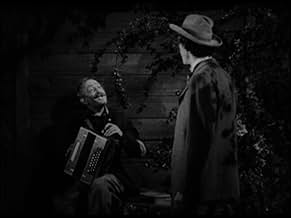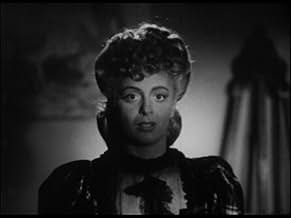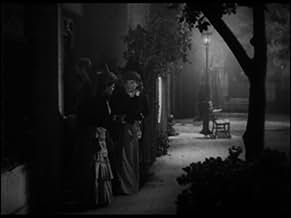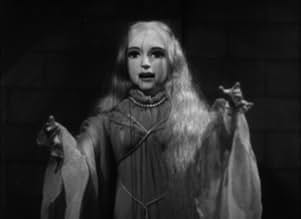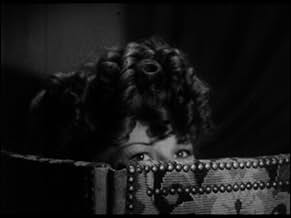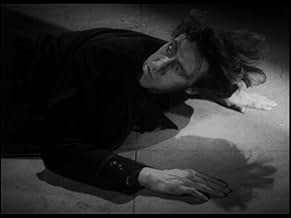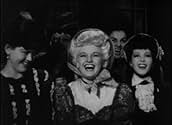IMDb RATING
5.9/10
2.3K
YOUR RATING
In Paris, an artist hires portrait models, and after he finishes their portraits, he strangles them.In Paris, an artist hires portrait models, and after he finishes their portraits, he strangles them.In Paris, an artist hires portrait models, and after he finishes their portraits, he strangles them.
- Director
- Writers
- Stars
Ludwig Stössel
- Jean Lamarte
- (as Ludwig Stossel)
Harry Cording
- Policeman
- (uncredited)
Frank Darien
- Inquiry Judge
- (uncredited)
Bess Flowers
- Courtroom Spectator
- (uncredited)
Mabel Forrest
- Woman
- (unconfirmed)
- (uncredited)
Eddie Hall
- Paul
- (uncredited)
- Director
- Writers
- All cast & crew
- Production, box office & more at IMDbPro
5.92.3K
1
2
3
4
5
6
7
8
9
10
Featured reviews
7tavm
John Carradine gives a chilling performance in Bluebeard
John Carradine had always considered his role as Gaston Morrell in Bluebeard as his favorite and since it's one of his few starring ones it's easy to see why. Director Edgar G. Ulmer makes the most of the low budget he had working for poverty row studio PRC in making one of the most atmospheric horror films of the '40s. Most of the supporting cast also do well here especially Jean Parker as Lucille who Gaston falls head over heels for and Ludwig Stossel as Jean Lamarte. The woman who played Renee, Sonia Sorel, would later marry Carradine and bear kids Keith and Robert with him. Iris Adrian lends some humor in a brief court sequence. Well worth seeking for old movie horror fans.
The Puppeteer of Paris
When not playing featured roles in classics like 'The Grapes of Wrath' John Carradine made a good living in stuff right at the bottom of the heap. These were the films in which he actually enjoyed top billing, so not surprisingly it was one of them that gave him his personal favourite of his roles; seldom off the screen and at his most dashing.
Garrulous but stylish, director Edgar G. Ulmer again makes bricks without straw; it's one drawback being Leo Erdody's unrelenting score, although it's fun to hear him constantly plunder Mussorgsky.
Garrulous but stylish, director Edgar G. Ulmer again makes bricks without straw; it's one drawback being Leo Erdody's unrelenting score, although it's fun to hear him constantly plunder Mussorgsky.
Carradine's finest hour
John Carradine plays Blubeard--he paints women and then strangles them to death. He doesn't want to do it but is compelled to (we find out why at the end). Then he falls in love with beautiful Lucille (Jean Parker) and tries to fight his desire...
John Carradine said this was his best performance--he's right! He's dead on target in the title role. He shows that Bluebeard is not evil and driven by impulses beyond his control. He uses body language and facial expressions perfectly. Also director Edgar G. Ulmer directs this beautifully with strange camera angles and lots of shadows making this very atmospheric. Also there are some beautifully done background paintings.
But this was done over at PRC--a poverty row studio. Unfortunately it shows. The furnishings and costumes look pretty tacky and it just FEELS low budget. Also the biggest problem is constant background music. It's ALWAYS playing and very annoying. Half the time the music doesn't even match the mood of what's being acted! These prevent the film from becoming a true classic.
As it stands I'm giving it an 8 for Carradine and Ulmer. It should be seen just for them. Also this is one of the few films that prove what a good actor Carradine actually was.
John Carradine said this was his best performance--he's right! He's dead on target in the title role. He shows that Bluebeard is not evil and driven by impulses beyond his control. He uses body language and facial expressions perfectly. Also director Edgar G. Ulmer directs this beautifully with strange camera angles and lots of shadows making this very atmospheric. Also there are some beautifully done background paintings.
But this was done over at PRC--a poverty row studio. Unfortunately it shows. The furnishings and costumes look pretty tacky and it just FEELS low budget. Also the biggest problem is constant background music. It's ALWAYS playing and very annoying. Half the time the music doesn't even match the mood of what's being acted! These prevent the film from becoming a true classic.
As it stands I'm giving it an 8 for Carradine and Ulmer. It should be seen just for them. Also this is one of the few films that prove what a good actor Carradine actually was.
A Great Gothic Character
The French legend of Bluebeard the famed wife killer serves as the background for this film about an artist who paints strikingly realistic female portraits only to kill the models he uses for them. A man with some serious issues.
John Carradine is the artist/strangler who has now turned to puppets in an effort to cure himself of this nasty habit. 19th century Paris is as frightened of Bluebeard as London of the same period is frightened of Jack the Ripper.
Bluebeard is an independently made film from the small poverty row picture company Producers Releasing Corporation. The film does not have any great production values, but probably the lack of them helps with the murky and moody atmosphere of the film. It certainly contributes to Carradine's portrayal.
The film borrows liberally from the Jack the Ripper story and the final chase when the French Gendarmes are closing in on Carradine is taken right from Phantom Of The Opera. John Carradine who did not get to star in too many good films creates a great Gothic character. If your taste runs to that kind of cinema, Bluebeard is the film for you.
John Carradine is the artist/strangler who has now turned to puppets in an effort to cure himself of this nasty habit. 19th century Paris is as frightened of Bluebeard as London of the same period is frightened of Jack the Ripper.
Bluebeard is an independently made film from the small poverty row picture company Producers Releasing Corporation. The film does not have any great production values, but probably the lack of them helps with the murky and moody atmosphere of the film. It certainly contributes to Carradine's portrayal.
The film borrows liberally from the Jack the Ripper story and the final chase when the French Gendarmes are closing in on Carradine is taken right from Phantom Of The Opera. John Carradine who did not get to star in too many good films creates a great Gothic character. If your taste runs to that kind of cinema, Bluebeard is the film for you.
One of Carradine's and PRC's finest
This telling of French serial killer Bluebeard (why was he called Bluebeard?) is notable for two reasons - one is John Carradine's haunting yet believable portrayal of a madman's psyche, and the other is for Edgar G. Ulmer's ability to create mood and even grandeur on a tiny budget. While Carradine's acting skills have never been in question, his over-the-top scene stealing in many small roles would make one approach him with caution in a leading role. However, Carradine manages to restrain himself enough to never grow old or cumbersome in the role, while simultaneously delivering his lines memorably - leading to the excellent final crescendo. The plot never tires, the direction is masterful, the ensemble acting (especially the devious art dealer Lamarte) far better than expected, and the final feeling one of satisfaction. While all of this is unadulterated praise, the movie does appear a tad bit stagey (via budgetary concerns) at times, and also moves slowly at certain points. Despite this, Bluebeard is not merely an excellent time-waster, but a movie worthy of any viewer going out, renting, and popping in.
Did you know
- TriviaFeatures John Carradine's own favorite performance.
- GoofsWhen the artist is going to paint the model "unobserved", it's done so by arranging mirrors so he can see her but she supposedly can't see him. In reality, however, no matter how many mirrors you use or how you arrange them, if you can see another person in the reflection(s), they can see you.
- Quotes
Gaston Morrell: Lucille, I want to tell you something no other living person knows...
- ConnectionsFeatured in Creature Features: The Mummy (1971)
- SoundtracksFaust
(1859) (uncredited)
Written by Charles Gounod
Excerpts played and sung in English at the marionette show
Excerpts played often in the score
- How long is Bluebeard?Powered by Alexa
Details
- Runtime
- 1h 12m(72 min)
- Color
- Aspect ratio
- 1.37 : 1
Contribute to this page
Suggest an edit or add missing content

